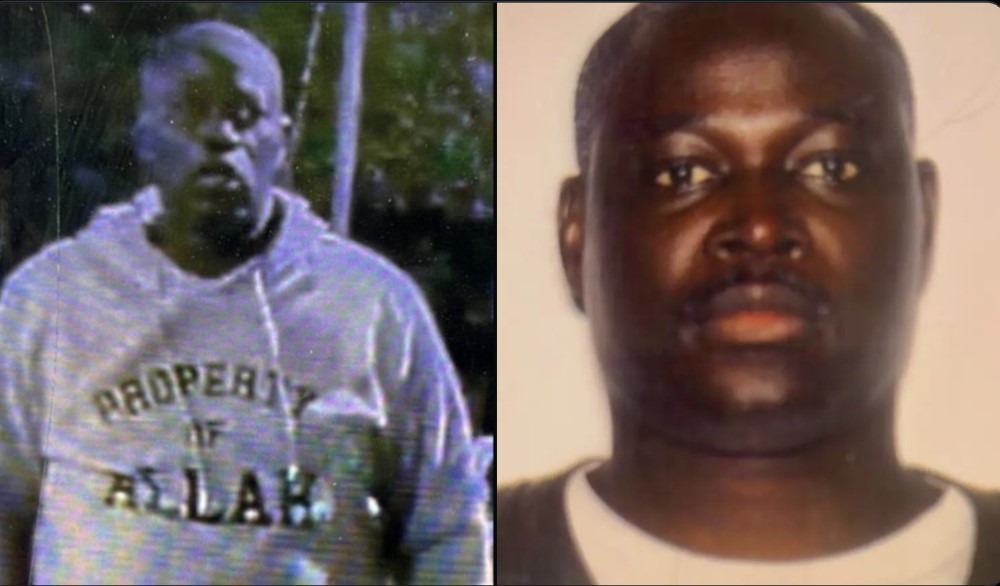Why Was the Man Who Killed Ukrainian Refugee Iryna Zarutska Free on Cashless Bail
 |
| Decarlos Brown Jr., 34, charged with murder in the stabbing of Iryna Zarutska, 23, on a Charlotte train |
A Deadly Failure: Who Was Decarlos Brown Jr.?
The man now charged in Zarutska’s death is 34-year-old Decarlos Brown Jr., a homeless individual with a 17-year record of arrests, mental instability, and violent behavior. His criminal history includes:
-
Armed robbery (5 years served)
-
Domestic assault
-
Resisting arrest
-
Larceny
-
Public disturbances linked to schizophrenia
Just months before the fatal attack, Brown had been arrested after calling 911 multiple times, claiming invisible forces controlled his body. Police flagged his deteriorating mental state. Yet instead of being held for psychiatric evaluation, he was released on a written promise—thanks to North Carolina’s cashless bail policy.
That decision set in motion a tragedy that has rocked the community and exposed serious flaws in the justice system.
What Happened to Iryna Zarutska?
On August 22, 2025, Zarutska was riding the Lynx Blue Line light rail through Charlotte when Brown, unprovoked, allegedly stabbed her to death. The horrifying act was caught on surveillance video. Witnesses said she didn’t know him. She was a refugee who had fled Russian aggression in Ukraine and recently started a job in Charlotte.
She escaped war. She couldn’t escape a broken American system.
How Cashless Bail Enabled a Killer
Cashless bail—meant to prevent discrimination against low-income defendants—allows individuals to be released without posting money if they’re not deemed an immediate threat. But critics argue that risk assessments are often rushed or poorly informed, especially in mental health-related arrests.
In Brown’s case:
-
He was released by a magistrate, not a judge.
-
A court-ordered mental evaluation was never completed.
-
He was not flagged as a danger to the public, despite clear warning signs.
This isn’t a rare lapse. It’s part of a systemic pattern.
System Breakdown: Mental Health, Courts, and Policy Gaps
The failure wasn’t just about bail—it was institutional. Consider:
1. Mental Health System Overload
North Carolina has a critical shortage of psychiatric beds, averaging 16+ days of wait time. That delay makes short-term jail releases common, even for unstable individuals.
2. Magistrate-Level Limitations
Magistrates handle many initial bail decisions with limited context and no psychiatric oversight. Judges can’t review every low-level arrest—leaving room for dangerous errors.
3. Underfunded Prosecution
Charlotte’s District Attorney’s office has only 85 prosecutors handling over 300 active homicide cases. Mental health-related red flags often get buried in volume.
4. Lack of Real-Time Mental Health Data
No centralized system alerts magistrates or jail staff to prior psychiatric holds or missed evaluations, meaning dangerous individuals slip through routine screening.
Political Firestorm: From Local Grief to National Outrage
Zarutska’s murder has set off a political explosion:
-
Donald Trump blasted Democratic bail reforms, calling them “deadly experiments” and citing Zarutska’s death as proof.
-
Republican lawmakers are now proposing mandatory psychiatric evaluations before cashless release.
-
Even Democratic officials in Charlotte admit the system failed—calling for urgent reforms in transit security, mental health access, and magistrate training.
Local residents are demanding answers. Advocacy groups are calling this case a “tipping point” for nationwide change.
What This Case Says About Bail Reform in America
For those searching “problems with cashless bail”, “North Carolina bail laws 2025,” or “mental illness and criminal justice,” this case illustrates how good intentions can go horribly wrong without the infrastructure to back them up. When public safety, mental health, and justice policy don’t align, the cost is often a life.
The Bottom Line: A Preventable Tragedy
Iryna Zarutska should have been protected. So should the people riding Charlotte’s trains. The system had every warning it needed:
-
A man with schizophrenia.
-
A violent past.
-
A missed court-ordered evaluation.
-
A release on paper instead of medical hold.
This wasn’t unpredictable. It was preventable.
Reform can’t wait. The next Iryna Zarutska could already be on another train.
Frequently Asked Questions (FAQs)
Who was Iryna Zarutska?
Iryna Zarutska was a 23-year-old Ukrainian refugee who fled the war in Ukraine and resettled in Charlotte, North Carolina. She had recently started a job and was working toward building a new life in the U.S. She was tragically murdered on August 22, 2025, in a random, unprovoked knife attack aboard a light rail train.
Who is Decarlos Brown Jr.?
Decarlos Brown Jr. is a 34-year-old homeless man with a long criminal history and a diagnosis of schizophrenia. His record includes 14 prior arrests, including armed robbery and domestic assault. He was released under a cashless bail policy despite multiple red flags related to his mental health.
What is cashless bail and how does it work?
Cashless bail (or "no-cash bail") is a policy that allows certain defendants to be released from jail without posting monetary bail. Instead, they sign a written promise to appear in court. The idea is to reduce pretrial detention for low-income individuals, but critics argue it can result in dangerous individuals being released without proper oversight.
Why was Decarlos Brown Jr. released without bail?
Brown was released by a magistrate after a mental health-related arrest in January 2025. Although a court-ordered psychiatric evaluation was requested in July, it was never completed. No judge reviewed the decision, and he was allowed to remain free under a promise to appear, even with his violent history and clear signs of mental instability.
Was Decarlos Brown previously diagnosed with mental illness?
Yes. Brown was reportedly diagnosed with schizophrenia and had exhibited multiple episodes of psychotic behavior, including paranoid delusions and erratic 911 calls. Despite this, the system failed to ensure he received treatment or was held for evaluation.
Could this tragedy have been prevented?
Many experts believe yes. There were multiple intervention points—missed psychiatric evaluations, ignored criminal history, and systemic lapses in coordination between law enforcement, mental health services, and the courts. The lack of real-time data sharing and under-resourced support systems played a critical role.
How are officials responding?
City leaders, including the Charlotte mayor and Mecklenburg County DA, have acknowledged major failures. Politicians across the spectrum are now calling for:
-
Mandatory mental health reviews before release
-
Tighter limits on cashless bail for repeat violent offenders
-
Increased investment in psychiatric infrastructure and forensic evaluation systems
-
More authority for judges over high-risk bail decisions
Is North Carolina reviewing its bail laws?
Yes. Following the Zarutska case, lawmakers are facing pressure to revisit and amend North Carolina's 2023 Pretrial Integrity Act to include stronger safeguards against the release of violent or mentally unstable individuals.
Where can I watch the surveillance video or read court documents?
Due to the graphic nature of the incident, the surveillance footage is not publicly released in full. However, excerpts have been shown to investigators and media under restriction. Court records are partially available through the Mecklenburg County Clerk of Court's public access system.
What reforms are activists and experts demanding now?
-
Creation of a centralized mental health alert system
-
Real-time data sharing between hospitals, jails, and courts
-
Expanded forensic psychiatry units
-
Automatic judicial review of repeat violent offenders before bail is granted
-
Safer public transit systems with embedded security personnel























